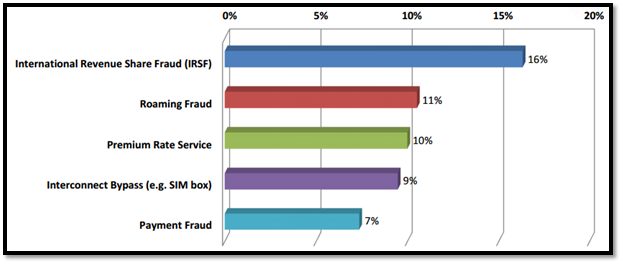International Revenue Share Fraud | Telecommunications

International Revenue Share Fraud (IRSF) is ranked in the top 5 most menacing frauds that hit the telecoms industry hard.

In simple terms, IRSF is the generation and/or inflation of traffic to premium rated destination. Let me try and break that down;
When Caller A calls Caller b based in another country, Caller A is charged by their home operator for the call. What most people do not know is that Caller A's operator is also charged for terminating the call on Caller B's operator.
If Caller A is charged say $2 for the call, Caller A's network provider will pay Caller B's network provider say $0.70 and get the remaining $1.30 as the actual charge for the call.
In IRSF, Caller A will have colluded with Caller B's operator (who in this case is a premium destination) to pump high call volumes to them. For this premium rated destinations, in most cases you will find the termination rate to be ridiculously high, say $10. Caller A (fraudulent) will be charged say $3, the operator charged $10 for terminating the call on the premium rated destination. In this case Caller A's network provider has suffered a loss of $7.
The fraudulent Caller A and the premium rated destinations network operator will then share the $7 accordingly.
One important aspect to remember is that this destinations are usually remote Islands with little to no traffic.
Not sure if its still happening but several years ago this scheme of scam was used in Africa. Scammers used to send fraudulent texts or even buzz to European numbers. When people call back they pay huge sums for the call and operators in Africa shares the money with scammers
Unfortunately it is still happening. Will talk about it in my next blog. Its Called Wangiri fraud, you can have a look at it when you have time